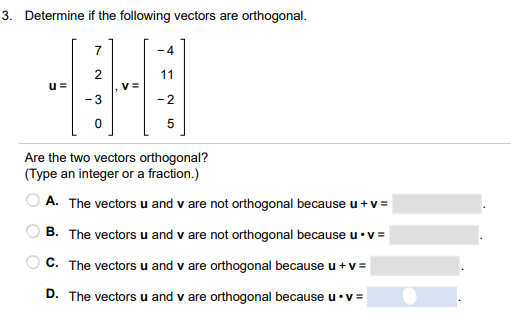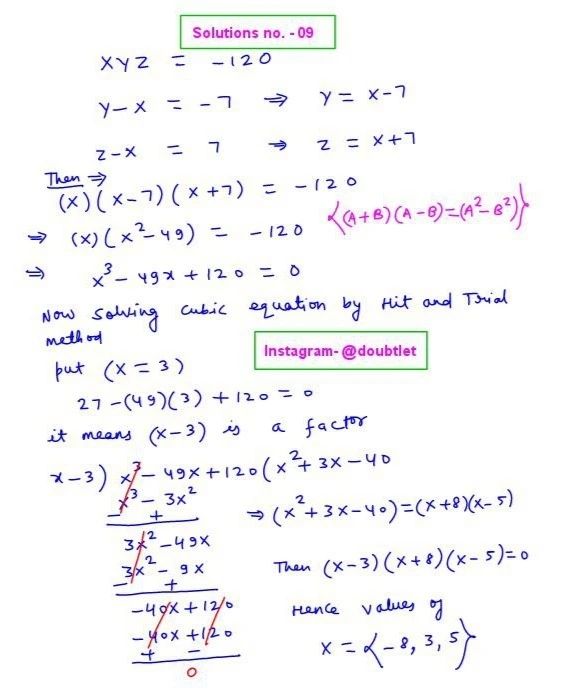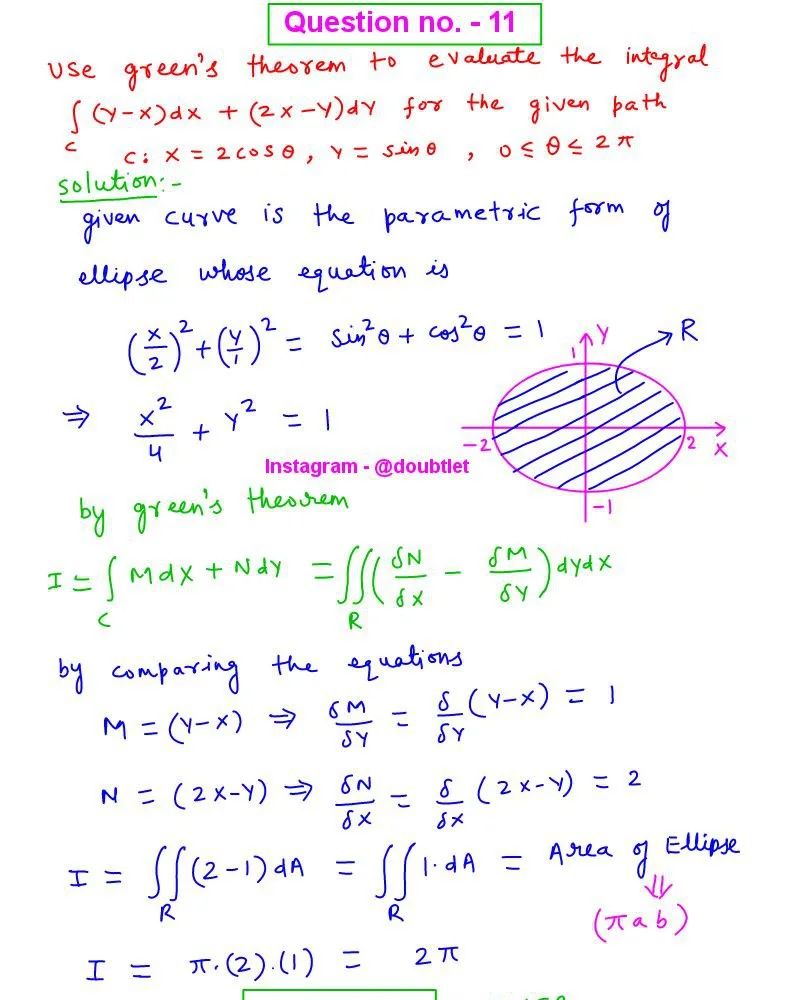









Question :
Determine if the following vectors are orthogonal.
are the two vectors orthogonal?
(type an integer or a fraction.)

Solution:

Neetesh Kumar | October 18, 2024
Linear Algebra Homework Help
This is the solution to Math2B Course: Linear Algebra
Assignment: Ch6 Section 1 Question Number 3
Contact me if you need help with Homework, Assignments, Tutoring Sessions, or Exams for STEM subjects.
You can see our Testimonials or Vouches from here of the previous works I have done.
Get Linear Algebra Homework Help
Step-by-step solution:
Two vectors are orthogonal if their dot product is zero.
The dot product of two vectors and is given by:
Step 1: Calculate the dot product
For the given vectors and , the dot product is:
Simplify each term:
Now, sum up the results:
Step 2: Determine if the vectors are orthogonal
Since the dot product is 0, the vectors and are orthogonal.
Final Answer
The vectors and are orthogonal because .
- Option - D. The vectors and are orthogonal because .
Please comment below if you find any error in this solution.
If this solution helps, then please share this with your friends.
Please subscribe to my Youtube channel for video solutions to similar questions.
Keep Smiling :-)
Comments(0)



Leave a comment